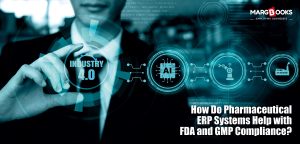The pharmaceutical industry plays a pivotal role in ensuring global health security, especially during unforeseen crises like pandemics or outbreaks. Pharmaceutical manufacturing must rapidly adapt to meet the urgent demands that arise. From scaling up production to improving supply chain logistics, the industry is constantly evolving to tackle these challenges effectively.
In this blog, we will explore how pharmaceutical manufacturing adapts to global health crises while integrating tools like Pharma billing software and Pharma distribution software to streamline operations. We’ll also highlight how platforms like MargBooks contribute to enhancing these processes.
Understanding Pharmaceutical Manufacturing in Crisis Management
Pharmaceutical manufacturing refers to the process of producing medications on a large scale under stringent safety and quality regulations. During global health crises, this sector faces unique challenges such as:
- Increased Demand: Surging demand for vaccines, antiviral drugs, and critical medications.
- Supply Chain Disruption: Delays in sourcing raw materials and distributing products efficiently.
- Regulatory Hurdles: Accelerated approval processes for emergency treatments.
- Workforce Management: Ensuring staff safety while maintaining production output.
Key Strategies for Adapting to Global Health Crises
Pharmaceutical companies employ several strategies to adapt and thrive during global health emergencies. Key approaches include:
1. Rapid Production Scaling
In times of crisis, pharmaceutical manufacturers must quickly scale up production to meet rising demands. This often requires:
- Increasing production lines and workforce.
- Partnering with contract manufacturers for additional capacity.
- Implementing advanced technology to optimize manufacturing speed.
2. Digital Transformation with Pharma Software
Digital solutions such as Pharma billing software and Pharma distribution software play a crucial role in managing pharmaceutical operations during emergencies.
- Pharma Billing Software: Ensures accurate and efficient billing for large-scale transactions, which is critical when sales volumes surge.
- Pharma Distribution Software: Tracks stock levels, automates inventory management, and streamlines deliveries to ensure medicines reach the right locations on time.
Platforms like MargBooks integrate both these solutions, offering an all-in-one tool that enhances efficiency, accuracy, and scalability for pharmaceutical businesses. With features such as real-time data tracking, automated reporting, and seamless integration, MargBooks empowers businesses to manage crises more effectively.
3. Strengthening Supply Chain Resilience
During global health crises, pharmaceutical supply chains face severe disruptions. Manufacturers must build a resilient network by:
- Diversifying supplier sources to reduce dependency on specific regions.
- Establishing regional distribution hubs for faster delivery.
- Using predictive analytics to anticipate stock shortages and plan accordingly.
4. Ensuring Regulatory Compliance
Regulations often change rapidly in a health crisis, demanding faster approvals for new drugs or vaccines. Manufacturers adopt strategies such as:
- Collaborating with regulatory agencies for streamlined approvals.
- Using digital tools to maintain thorough documentation and compliance records.
- Investing in secure data systems like MargBooks to ensure real-time updates and track regulatory changes.
5. Enhancing Workforce Safety
Protecting employees is vital for sustaining operations during a crisis. Pharmaceutical companies adopt practices like:
- Implementing strict hygiene protocols and social distancing in production units.
- Providing protective equipment and regular health check-ups for staff.
- Utilizing remote monitoring systems to minimize on-site workforce exposure.
The Role of MargBooks in Pharmaceutical Manufacturing During Crises
MargBooks offers a comprehensive solution for managing key aspects of pharmaceutical manufacturing, ensuring smooth operations even in challenging situations. Key benefits include:
- Inventory Control: Tracks medicine stock levels to avoid shortages.
- Billing Efficiency: Ensures accurate billing during high-demand periods.
- Distribution Management: Facilitates faster deliveries with real-time tracking.
- Compliance Support: Maintains records to meet regulatory requirements efficiently.
By integrating MargBooks into their workflow, pharmaceutical businesses can boost their preparedness and ensure a steady supply of critical medications during crises.
Conclusion
The pharmaceutical manufacturing sector must continuously innovate and adapt to meet the demands of global health crises. By leveraging advanced tools like Pharma billing software, Pharma distribution software, and comprehensive platforms such as MargBooks, manufacturers can overcome challenges, ensure product availability, and maintain compliance.
Incorporating these strategies empowers pharmaceutical companies to contribute effectively to global health security while maintaining operational efficiency. As the world faces evolving health challenges, investing in innovative solutions and agile processes will remain key to ensuring pharmaceutical manufacturing thrives in any crisis.




